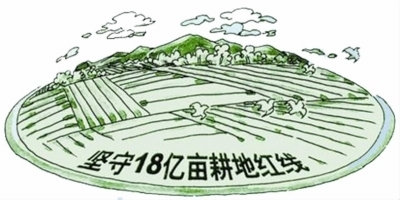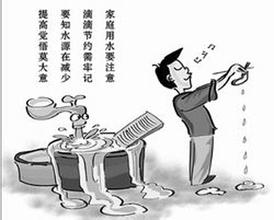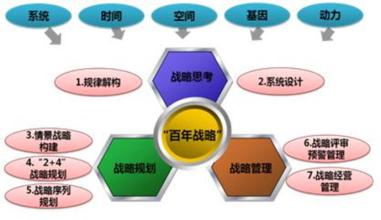日本环境保护基本法(英文版) Law No.91 of 1993. Effective on November 13, 1993 颁发单位 颁发日期 法规类别 Content Chapter 1 General Provisions (Article…
中华人民共和国环境保护法 (2014年4月24日,十二届全国人大常委会第八次会议表决通过了《中华人民共和国环境保护法(修订草案)》。新修订的环境保护法在环境保护基本理念、公众参与、法律责任等方面都作出了重要修改。) 目 录 第一章 总则 第二章 监督…
第32卷 第1期2013年2月 ()文章编号:1001-4373201301-0058-05 兰州交通大学学报 JournalofLanzhouJiaotonUniversit gy Vol.32No.1 Feb.2013 :/DOI10.3969-…
日本环境保护基本法(英文版) Law No.91 of 1993. Effective on November 13, 1993
颁发单位
颁发日期
法规类别
Content
Chapter 1 General Provisions (Articles 1-13 )
Chapter 2 Basic Policies for Environmental Conservation
Section 1 Guidelines for Policy Formulation (Article 14)
Section 2 Basic Environment Plan (Article 15)
Section 3 Environmental Quality Standards (Article 16)
Section 4 Environmental Pollution Control in Specific Areas (Articles 17 and 18)
Section 5 Implementation of Policies for Environmental Conservation by the State (Articles 19-31)
Section 6 International Cooperation for Global Environmental Conservation etc. (Articles 32-35)
Section 7 Implementation of Policies by Local Governments (Article 36)
Section 8 Bearing of Costs and Financial Measures (Articles 37-40)
Chapter 3 Environment Council etc.
Section 1 Environment Council (Articles 41-44)
Section 2 Conference on Environmental Pollution Control (Articles 45 and 46) Supplementary Provision
--------------------------------------------------------------------------------
Chapter 1 General Provisions
back to TOP
(Purpose)
Article 1
The purpose of this law is to comprehensively and systematically promote policies for environmental conservation to ensure healthy and cultured living for both the present and future generations of the nation as well as to contribute to the welfare of mankind, through articulating the basic principles, clarifying the responsibilities of the State, local
governments,corporations and citizens, and prescribing the basic policy considerations for environmental conservation.
(Terminology)
Article 2 日本政府 1993/11/23 国家法律 实施日期 内容分类 1993/11/23 综合法规
1 For the purpose of this law,
environmental conservation.
2 For the purpose of this law,
marine pollution, decrease in wildlife species and others which are caused by human activities and affect the environment of the entire globe or a large part of it, which contributes to the welfare of mankind as well as to the healthy and cultured living of the people.
3 For the purpose of this law,
(Enjoyment and Future Success of Environmental Blessings)
Article 3
Environmental conservation shall be conducted appropriately to ensure that the present and future generations of human beings can enjoy the blessings of a healthy and productive environment and that the environment as the foundation of human survival can be preserved into the future, in consideration that preserving the healthy and productive environment is indispensable for healthy and cultured living for the people, and that the environment is maintained by a delicate balance of the ecosystem and forms the foundation of human
survival, which is finite in its carrying capacity and presently at risk of being damaged by the environmental load generated by human activities.
(Creation of A Society Ensuring Sustainable Development with Reduced Environmental Load)
Article 4
Environmental conservation shall be promoted so that a society can be formulated where the healthy and productive environment is conserved and sustainable development is ensured by fostering sound economic development with reduced environmental load, through practices on environmental conservation such as reducing as much as possible the environmental load generated by socio-economic and other activities, which are voluntarily and positively
pursued by all the people sharing fair burden; and so that interference with environmental conservation can be anticipatively prevented through enhancing scientific knowledge.
(Active Promotion of Global Environmental Conservation through International Cooperation )
Article 5
Global environmental conservation shall be actively promoted in cooperation with other countries, utilizing Japan''s capacities and resources, and in accordance with Japan''s standing in the international community, in consideration of the fact that global environmental conservation is a common concern of mankind as well as a
requirement in ensuring healthy and cultured living of the people into the future, and that the Japanese economy and society is closely interdependent with the international community.
(Responsibility of the State)
Article 6
The State is responsible for formulating and implementing fundamental and comprehensive policies with regard to environmental conservation, pursuant to the basic principles on
environmental conservation prescribed in the three articles preceding (hereinafter referred to as the
(Responsibility of Local Governments)
Article 7
The local governments are responsible for formulating and implementing policies with regard to environmental conservation corresponding to national policies and other policies in accordance with the natural and social conditions of the local governments'' jurisdiction, pursuant to the basic principles.
(Responsibility of Corporations)
Article 8
1 In conducting business activities, corporations are responsible for taking necessary measures to prevent environmental pollution, such as the treatment of smoke and soot, polluted water and wastes, etc. resulting from their activities, and to properly conserve the natural environment, pursuant to the basic principles.
2 In manufacturing, processing or selling products, or engaging in other business activities, corporations are responsible for taking necessary measures for ensuring proper disposal of the wastes generated from products and other goods related to their activities, so as to
prevent interference with environmental conservation, pursuant to the basic principles.
3 Besides the responsibilities prescribed in the preceding tao Paragraphs, in manufacturing, processing or selling products, or engaging in other business activities, corporations are responsible for making efforts to reduce the environmental loads resulting from the use or disposal of the products and other goods related to their activities; and for making effort to use recyclable resources and other materials and services which contribute to reducing the environmental loads in their activities, so as to prevent interference with environmental conservation, pursuant to the basic principles.
4 Besides the responsibilities prescribed in the preceding three Paragraphs, corporations are responsible for making voluntary efforts to conserve the environment such as reduction of the environmental loads in the course of their business activities; and for cooperating with the policies implemented by the State or local governments with regard to environmental conservation, pursuant to the basic principles.
(Responsibility of Citizens)
Article 9
1 Citizens shall make efforts to reduce the environmental loads associated with their daily lives so as to prevent interference with environmental conservation, pursuant to the basic principles.
2 Besides the responsibility prescribed in the preceding Paragraph, citizens are responsible for making efforts to conserve the environment and for cooperating with the policies
implemented by the State or local governments with regard to environmental conservation, pursuant to the basic principles.
(Environment Day)
Article 10
1 In order to promote awareness and understanding of environmental conservation among corporations and the people, and to encourage willingness to pursue activities related to environmental conservation, there shall be designated the Environment Day.
2 The Environment Day shall be June 5th.
3 The State and local governments shall make efforts to carry out events which support the spirit and objective of the Environment Day.
(Legislative Measures etc.)
Article 11
The Government shall take legislative, financial and other measures required to implement the policies with regard to environmental conservation.
(Annual Report)
Article 12
1 The Government shall submit annually to the Diet a report on the state of the environment and the policies implemented with regard to environmental conservation.
2 The Government shall make and submit annually to the Diet a document explaining the policies the Government is going to implement considering the State of the environment as described in the report in the preceding Paragraph.
(Prevention of Air Pollution and the like by Radioactive Substances)
Article 13
The measures to prevent air pollution, water pollution and soil contamination caused by radioactive substances shall be implemented under the Atomic Energy Basic Law (Law No.186 of 1955) and other related legislation.
Chapter 2 Basic Policies for Environmental Conservation
Section 1 Guidelines for Policy Formulation
back to TOP
Article 14
The formulation and implementation of the policies for environmental conservation set forth in this chapter shall be administered comprehensively and systematically, coordinating the various measures, pursuant to the basic principles and aiming at ensuring the following objectives.
(1) To maintain natural elements of the environment such as air, water and soil in good condition so as to protect human health, to conserve the living environment and to properly preserve the natural environment.
(2) To protect the biodiversity such as the diversity of ecosystems and wildlife species, and to orderly conserve the various features of natural environment such as in the forest, farmlands and waterside areas in accordance with the natural and social conditions of the area.
(3) To maintain rich and harmonious contacts between people and nature.
Section 2 Basic Environment Plan
back to TOP
Article 15
1 The Government shall establish a basic plan with regard to environmental conservation (hereinafter referred to as the
2 The Basic Environment Plan shall stipulate the following matters.
(1) The outline of the comprehensive and long-term policies for environmental conservation
(2) Besides the preceding matter, the matters required to comprehensively and
systematically promote the policies for environmental conservation
3 The Prime Minister shall formulate a draft of the Basic Environment Plan and ask the Cabinet for its decision, after hearing the opinion of the Central Environment Council.
4 The Prime Minister shall promulgate the Basic Environment Plan without delay when the Cabinet has made its decision in accordance with the preceding Paragraph.
5 The preceding two Paragraphs shall apply mutatis mutandis to changes of the Basic Environment Plan.
Section 3 Environmental Quality Standards
back to TOP
Article 16
1 With regard to the environmental conditions related to air pollution, water pollution, soil contamination and noise, the Government shall respectively establish environmental quality Standards, the maintenance of which is desirable for the protection of human health and the conservation of the living environment.
2 In the event that the standards referred to in the preceding Paragraph establish more than one category and stipulate that land or water areas to which those categories are to be applied should be designated, the Government may delegate to the prefectural governors concerned the authority to designate those land or water areas, in accordance with Cabinet Order.
3 With regard to the standards set forth in Paragraph 1, due scientific consideration shall always be given and such standards shall be revised whenever necessary.
4 The Government shall make efforts to attain the standard provided for in Paragraph 1 by comprehensively and effectively implementing policies concerning environmental pollution control which are set forth in this chapter (hereinafter referred to as the
Section 4 Environmental Pollution Control in Specific Areas
back to TOP
(Formulation of Environmental Pollution Control Program)
Article 17
1 The Prime Minister shall instruct the prefectural governors concerned to formulate
programs on measures for environmental pollution control (hereinafter referred to as the
(1) Areas where environmental pollution is currently serious and where it is recognized that it is very difficult to prevent environmental pollution unless the environmental pollution control policies are comprehensively implemented.
(2) Areas where environmental pollution is likely to become serious due to the rapidly
increasing concentration of population, industry etc., and where it is recognized that it will be very difficult to prevent environmental pollution unless the environmental pollution control policies are comprehensively implemented.
2 The basic directions provided for in the preceding Paragraph shall be formulated on the basis of the Basic Environment Plan.
3 When the prefectural governor concerned has received the instruction provided for in Paragraph 1, he/she shall formulate an Environmental Pollution Control Program in
accordance with the basic directions provided for in the same Paragraph and shall submit it to the Prime Minister for his/her approval.
4 Prior to issuing the instruction under Paragraph 1 or giving the approval required under the preceding Paragraph, the Prime Minister shall ask the Conference on Environmental Pollution Control for its decision.
5 Prior to issuing the instruction under Paragraph 1, the Prime Minister shall hear the opinions of the prefectural governors concerned.
Promotion of Attainment of Environmental Pollution Control Program)
Article 18
The State and local governments shall make efforts to take measures necessary or the attainment of the Environmental Pollution Control Programs.
Section 5 Implementation of Poiicies for Environmental Conservation by the State
back to TOP
(Consideration in Formulation of Policies by the State)
Article 19
The State shall consider environmental conservation when formulating and implementing policies which are deemed to influence the environment.
(Promotion of Environmental Impact Assessment)
Article 20
The State shall take necessary measures to ensure that, when corporations are engaged in alteration of land shape, construction of new structures and other similar activities, they will conduct in advance, surveys, forecasts or evaluations of the environmental impact of such activities and will give proper consideration to environmental conservation based on the results of them.
(Regulations to Prevent Interference with Environmental Conservation)
Article 21
1 The Government shall take the following regulatory measures to prevent interference with environmental conservation.
(1) Regulatory measures necessary to prevent environmental pollution, inter alia, by setting the Standards with which corporations must comply regarding such activities as emission of substances causing air pollution, water pollution, soil contamination or offensive odors; generation of noise or vibration; and the taking of underground water causing ground subsidence.
(2) Regulatory measures necessary to prevent environmental pollution with regard to Iand use and construction of facilities causing pollution in an area where the pollution is serious or is likely to become serious.
(3) Regulatory measures necessary to prevent interference with appropriate conservation of the natural environment regarding activities which may cause those interference, such as alteration of land shape, construction of new structures, cutting of trees and other activities in areas where conservation of the natural environment is especially required.
(4) Regulatory measures necessary to prevent interference with appropriate protection of natural objects with regard to such activities as capturing collecting, damaging which may cause those interference as to natural objects necessary to be protected such as the wildlife, geographical and geological features of land or sources of hot springs.
(5) Regulatory measures necessary to prevent both environmental pollution and interference with conservation of the natural environment where both of them occur or may occur.
2 Besides the regulatory measures provided for in the preceding Paragraph, the State shall make efforts to take necessary regulatory measures similar to Subparagraph 1 and 2 of the preceding Paragraph, in order to prevent interference with environmental conservation with regard to human health and the living environment.
(Economic Measures to Prevent Interference with EnvironmentaI Conservation)
Article 22
1 In order to encourage persons who are conducting the activities generating or causing to generate environmental load (referred to as the
activities
conservation, the State shall make efforts to take necessary measures to provide necessary and appropriate economic assistance to those persons taking into consideration their economic situation.
2 In consideration of the fact that the measures, which aim at encouraging persons who are conducting the load activities to undertake voluntarily to reduce the environmental load by means of imposing appropriate and equitable economic surcharges on them, are expected to be effective in preventing interference with environmental conservation, and that such measures are internationally recommended; the State shall appropriately conduct surveys and researches on the effectiveness of implementing such measures with regard to prevention of interference with environmental conservation and on the effects of such measures on Japanese economy; and should it be deemed necessary to implement such measures, the State shall make efforts to acquire the understanding and cooperation of tile
people with regard to utilization of such measures to prevent interference with environmental conservation. In this case, should such measures be implemented for global environmental conservation, the State shall consider international collaboration so as to appropriately ensure the effectiveness of such measures.
(Promotion of Construction of Facilities and Other Projects for Environmental Conservation)
Article 23
1 The State shall take necessary measures to promote projects for prevention of interference with environmental conservation, i.e. construction of public facilities such as buffer zones, and other projects such as dredging of sludge and protection and breeding of the endangered wildlife.
2 The State shall take necessary measures to promote projects which contribute to prevent interference with environmental conservation, i.e. the construction public facilities such as sewerage, public waste disposal facilities, traffic facilities(including transportation facilities) which contribute to reduce the environmental load, and other projects such as improvement of forests.
3 The State shall take necessary measures to promote projects for appropriate improvement and sound use of the natural environment, including such public facilities as parks and green areas.
4 The State shall take necessary measures to promote appropriate use of the public facilities provided for in the preceding two Paragraphs and other measures to increase the function of environmental conservation with regard to these facilities.
(Promotion of Use of Products Contributing to Reduction of Environmental Load )
Article 24
The State shall take necessary measures such as providing corporations with technical assistance so that, in manufacturing, processing or selling products, or engaging in other business activities, they can appropriately consider the reduction of the environmental load associated with products and other goods, by voluntarily assessing in advance the

environmental Ioad generated by the use or disposal of the products and other goods.
2 The State shall take necessary measures to encourage use of recyclable resources and other materials, products and services which contribute to the reduction of environmental load.
(Education and Learning on Environmental Conservation)
Article 25
The State shall take necessary measures to increase corporations'' and
citizens'' understanding of environmental conservation and to encourage their willingness to engage in activities related to environmental conservation, by means of promoting environmental education and Iearning and improving public relations activities with regard to environmental conservation.
(Measures to Promote Voluntary Activities by Private Organizations)
Article 26
The State shall take necessary measures to promote voluntary activities with regard to environmental conservation such as tree planting and the recovery of recyclable resources conducted by corporations, citizens or private bodies organized by these entities (hereinafter referred to as the
(Provision of Information)
Article 27
The State shall make efforts to appropriately provide necessary information on
environmental conservation including the state of the environment, so as to promote the education and learning provided for in Article 25 and to contribute to the activities voluntarily conducted by the private bodies etc. provided for in the preceding Article, in consideration of the protection of the rights and benefits of individuals and legal entities.
(Implementation of Researches)
Article 28
The State shaII conduct surveys on the state of the environment, researches on forecast of environmental changes and other studies for formulation of policies with regard to
environmental conservation.
(Improvement in Systems for Monitoring and Others)
Article 29
The State shall make efforts to establish systems of monitoring, patrolling, observations, measurements, examinations and inspections in order to ascertain the state of the environment and to properly implement the policies with regard to environmental
conservation.
(Promotion of Science and Technology)
Article 30
1 The State shall promote science and technology with regard to understanding of the mechanisms of environmental changes, reduction of environmental Ioad, development of methods to evaluate comprehensively both the effects on the environment caused by the economy avid the blessings on the economy derived from the environment, and other science and technology with regard to environmental conservation.
2 In order to promote science and technology with regard to environmental conservation, the State shall establish research systems, promote research and development, disseminate the results of research and development, train researchers, and take other necessary measures.
(Settlement of Environmental Pollution Disputes and Relief of Damage)
Article 31
1 The State shall take necessary measures to effectively implement mediation, arbitration, etc. with regard to disputes related to environmental pollution, and take other necessary measures to smoothly resolve problems arising from environmental pollution.
2 The State shall take necessary measures to smoothly implement measures for relieving the damage caused by environmental pollution.
Section 6 International Cooperation for Global Environmental Conservation etc.
back to TOP
(International Cooperation for Global Environmental Conservation etc.)
Article 32
1 The State shall make efforts to take necessary measures to secure international
collaboration for global environmental conservation and to promote other international cooperation for global environmental conservation; and to assist conservation of the
environment in developing regions and the environmental features being recognized of its international value, which contribute to both the welfare of mankind and the healthy and cultured living of the Japanese people (referred to as the
2 The State shall make efforts to take necessary measures to smoothly promote international cooperation with regard to both global environmental conservation and environmental
conservation in developing regions etc. (hereinafter referred to as the
(Ensuring International Cooperation for Monitoring, Observation and Others)
Article 33
The State shall make efforts to ensure international collaboration so as to effectively promote the monitoring, observation and measurement of the environmental situation with regard to global environmental conservation etc. It shall also make efforts to promote international cooperation to carry out surveys, examinations and researches with regard to global environmental conservation etc.
(Measures to Promote Activities by Local Governments and Private Organizations)
Article 34
1 In consideration of importance of the roles played by local governments in promoting international cooperation with regard to global environmental conservation etc., the State shall make efforts to take necessary measures e.g. providing information, to promote such activities by local governments for international cooperation.
2 In consideration of the importance of voluntary activities conducted by private bodies etc. outside Japan for the international cooperation with regard to global environmental
conservation etc., the State shall make efforts to take necessary measures e.g. providing information, to promote such activities by private bodies etc.
(Considerations in Implementation of International Cooperation and Others)
Article 35
1 The State, in implementing international cooperation, shall make efforts to consider global environmental conservation etc. in the areas where the international cooperation is implemented.
2 The State shall make efforts to take necessary measures e.g. providing information to corporations, so that the corporations can properly consider global environmental
conservation etc. in the areas outside Japan where these corporations conduct their business activities.
Section 7 Implementation of Policies by Local Governments
back to TOP
Article 36
Local governments shall comprehensively and systematically implement and promote policies corresponding to the national policies provided for in Section 5 and other policies necessary for environmental conservation in accordance with the natural and social
conditions of the local governments'' jurisdiction. In this case, the prefecture shall mainly implement the policies for a large area and comprehensively coordinate the policies administered by the municipalities.
Section 8 Cost Bearing and Financial Measures
back to TOP
(Cost Bearing by Causers)
Article 37
The State and local governments shall take necessary measures to ensure that, when the State, local governments or their equivalents (referred to as the
considering the necessity of prompt prevention of the interference, the scale of the project and other circumstances, persons who have caused the circumstances necessitating the project are required to bear appropriate and equitable share of the entire or a part of the expenses to implement the project, upon recognizing it is appropriate to make them bear the cost taking into account the extent of interference related to environmental pollution etc. caused by and the degree of responsibility attributed to their activities.
(Cost Bearing by Beneficiaries)
Article 38
The State and local governments shall take necessary measures to ensure that, when
persons receive a special benefit from the implementation of nature conservation projects carried out in areas where conservation of the natural environment is especiaIIy required, those persons are required to bear appropriate and equitable share of the entire or a part of the expenses to implement such projects in accordance with the degree of benefit received.
(Financial Measures for Local Governments)
Article 39
The State shall make efforts to take necessary financial measures and other measures with regard to the expenses borne by the local governments to formulate and Implement policies for environmental conservation.
(Cooperation between the State and Local Governments)
Article 40
The State and local governments shall cooperate on implementing policies for environmental conservation.
Chapter 3 Environment Council etc.
Section 1 Environment Council
back to TOP
(Central Environment Council)
Article 41
1 There is hereby established a Central Environment Council (hereinafter referred to as the
2 The Council shall be in charge of the following tasks.
(1) To handle the task provided for in Article 15 Paragraph 3 with regard to the Basic Environment Plan.
(2) To Study and discuss the basic matters with regard to environmental conservation in response to the consultation by the Prime Minister.
(3) To Study and discuss the important matters with regard to environmental conservation in response to the consultation by the Director General of the Environment Agency or other ministers concerned.
(4) In addition to the tasks referred to in preceding three subparagraphs, delegated tasks as provided for by other laws and ordinances.
3 The Council may submit its opinions to the Prime Minister, the Director General of the Environment Agency or other ministers concerned, with regard to the matters provided for in the preceding paragraph.
(Organization cf the Central Environment Council)
Article 42
1 The Council shall be comprised of no more than 80 members.
2 The Council may designate special members when necessary to Study and discuss specific matters.
3 The Council members and special members shall be appointed by the Prime Minister from among academics or those having expertise or experiences with regard to environmental conservation.
4 The Council members and special members shall serve on a part-time
basis.
5 Beside those provided for in the preceding paragraphs, matters necessary for the organization and administration of the Council shall be stipulated by Cabinet Order.
(Prefectural Environment Council)
Article 43
1 The prefecture shall establish a Prefectural Environment Council to study and discuss the basic matters and others with regard to environmental conservation within the
prefecture''s jurisdiction.
2 The matters necessary for the organization and administration of the Prefectural Environment Council shall be stipulated by prefectural ordinances.
(Municipal Environment Council)
Article 44
The municipalitv may establish a Municipal Environment Council, as stipulated by municipal ordinances, to study and discuss the basic matters and others with regard to environmental conservation within the area of the municipality.
Section 2 Conference on Environmental Pollution Control
back to TOP
(Establishment and Mandates)
Article 45
1 There is hereby established a Conference on Environmental Pollution Control (hereinafter referred to as the
Minister''s Office.
2 The Conference shall perform the following mandates.
(1) To deal with matters provided for in Article 17 Paragraph 4 with regard to the
Environmental Pollution Control Program.
(2) In addition to the task referred to in the preceding subparagraph, to discuss the planning of basic and comprehensive policies for environmental pollution control and promote the implementation of such policies.
(3) In addition to the tasks referred to in preceding two subparagraphs, delegated tasks as provided for by other laws and cabinet orders.
(Organization etc. )
Article 46
1 The Conference is comprised of a chairman and Conference members.
2 The Prime Minister shall be the chairman.
3 Members shall be appointed by the Prime Minister from among the heads of the ministries and agencies concerned.
4 There shall be secretaries of the Conference.
5 Secretaries shall be appointed by the Prime Minister from among officials of the ministries and agencies concerned.
6 Secretaries shall assist the chairman and members in dealing with mandates of the Conference.
7 The administrative work of the Conference shall be handled by the Environment Agency.
8 Besides those provided for in the preceding paragraphs, matters necessary for organization and operation of the Conference shall be provided for by Cabinet Order.
Supplementary Provision
back to TOP
This law shall enter into force on the day of its promulgation except for the provisions of Articles 43 and 44, which shall enter into force on the day stipulated by Cabinet Order within a year since the promulgation of this law.
日本环境保护基本法(英文版) Law No.91 of 1993. Effective on November 13, 1993 颁发单位 颁发日期 法规类别 Content Chapter 1 General Provisions (Article…
日本环境保护基本法(英文版) Law No.91 of 1993. Effective on November 13, 1993 颁发单位 颁发日期 法规类别 Content Chapter 1 General Provisions (Article…
日本环境保护基本法(英文版) Law No.91 of 1993. Effective on November 13, 1993 颁发单位 颁发日期 法规类别 Content Chapter 1 General Provisions (Article…
百度搜索“爱华网”,专业资料,生活学习,尽在爱华网
 爱华网
爱华网



